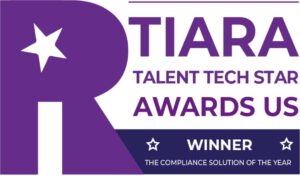Buzzwords like “sustainability” and “corporate social responsibility” (CSR) seem to be in style in today’s business world — and for good reason. Research shows that younger millennials and Gen Z not only care about the environment but are willing to take a stand when it comes to talking about it online and investing in companies with which their values align.
While C-Suite executives and governance teams play a clear role in sustainability and CSR, other departments can sometimes struggle to understand how they can connect to environmental initiatives.
If you’re an HR professional and you find this to be the case, it may be time for you to dive deeper into the concept and figure out how you can help your company in its quest for greater responsibility.
Sustainability vs. Corporate Social Responsibility
Though sustainability and CSR are often used interchangeably, they are not the same thing.
Sustainability encompasses the economic, environmental, and social aspects of business management. It refers to a management model that prioritizes growth and profitability through business practices that intentionally consider these three areas in order to create long-term value.
CSR, on the other hand, is an initiative or commitment that corporations undertake as a promise to stakeholders that they will be accountable to society beyond their economic objectives. These initiatives lead company leadership to pivot their operations so that they make decisions based on the good of the greater society.
The Three Pillars of Sustainability
When it comes to applying the concept of sustainability in the corporate world, teams need to focus on three pillars:
- Economic: How a company seeks long-term profitability through good governance and resource management
- Environmental: How a company works to reduce its carbon footprint and negative environmental impact
- Social: How a company cares and advocates for people inside and outside of its business
Approaching sustainability as a multi-layered concept helps ensure corporations can meet their present needs for profitability without compromising the future of society or the planet.
How HR Teams Can Promote Sustainability and CSR
Everyone has a role to play in making sure businesses can meet their sustainability and CSR objectives. Learn how HR sustainability practices can play a role in ensuring the organization stays focused on the right things.
Ethical Labor Practices
The ideas of sustainability and CSR are built on the premise that, when given the chance, business leaders will do what’s right. Because labor practices are mainly in the purview of HR, this represents an opportunity for HR professionals to demonstrate and ensure ethical behavior.
This means treating your existing workforce with fairness and respect when creating and enforcing policies. It also means establishing initiatives that show care for employees’ well-being and promote safety in the workplace.
As an HR professional, you should continue to look for ways to avoid harm and promote integrity, as we’re seeing more companies held liable for ethical behavior in the workplace.
Environmentally Friendly Policies
Because HR is one of the primary drivers of company policies, HR professionals have an unprecedented opportunity to incorporate environmentally friendly practices into those policies.
For example, you can implement policies that help steer employees away from using paper in the office and instead promote the use of technology to record, store, and distribute information.
You can also promote flexible working arrangements to allow employees to work from home. Alternatively, you might provide incentives for using environmentally friendly transportation, such as walking, biking, carpooling, or taking public transportation to work.
Learning and Development
As an HR professional, you likely have a lot of influence over your company’s learning and development program. Why not leverage that influence to educate both employees and senior leadership about CSR and sustainability practices?
When speaking with employees, it’s important to help them understand how their daily work aligns with your company’s sustainability values. When addressing corporate leadership, it’s critical to be able to show how CSR or sustainability initiatives can improve efficiency and productivity and save money in the long term.
Communication
Whenever you communicate with stakeholders, keep corporate sustainability and CSR initiatives in mind. Collect data on the impact and outcomes of these efforts and make it a point to update employees, customers, and investors on a regular basis.
This intentional communication not only keeps sustainability as a focus but also makes stakeholders feel good to be a part of a company that truly cares about others, improving employee attraction, engagement, and retention.
Getting on Board With a New Generation
While HR professionals may not immediately see how they can play a role in promoting sustainability and corporate social responsibility, the truth is that they have more influence than they think. Behaving ethically and communicating about the good your company is doing in the world can go a long way toward getting stakeholders on board.
When you go the extra mile to do so, you accomplish so much more than just enhancing your brand. Ultimately, your efforts contribute to a better world — for those who live in it today as well as those who will inherit it in the future.






